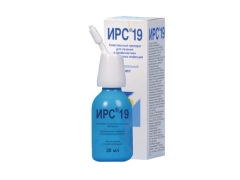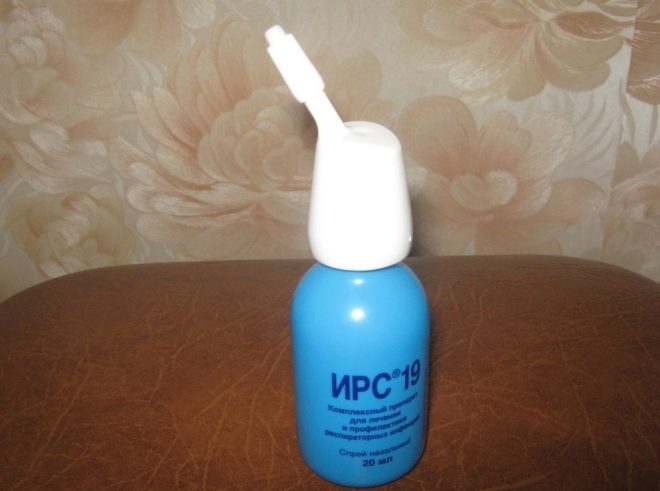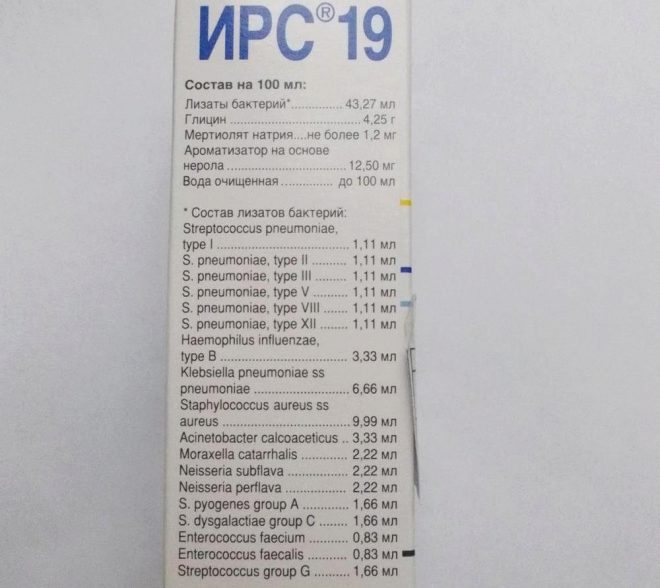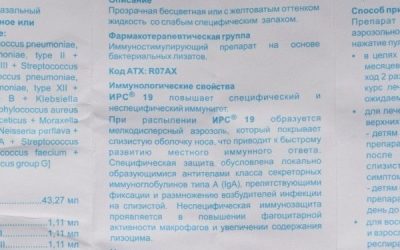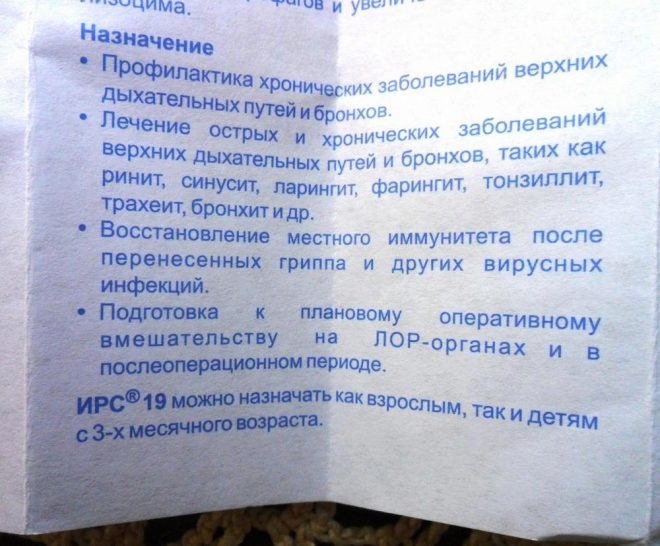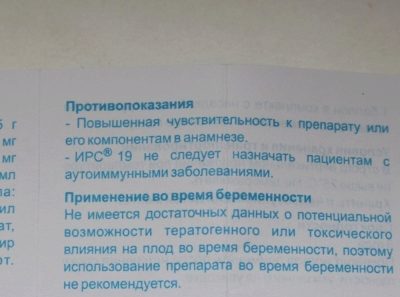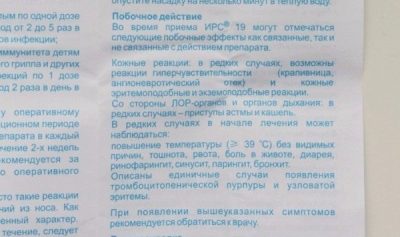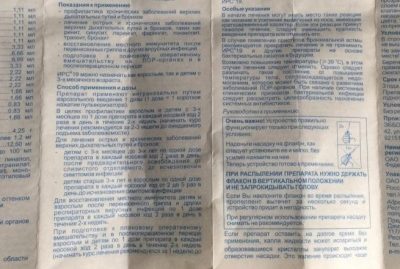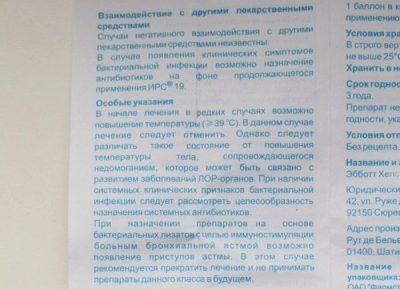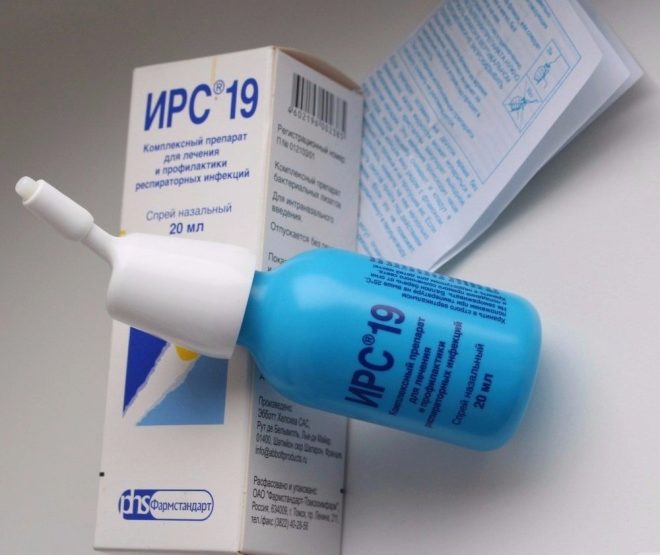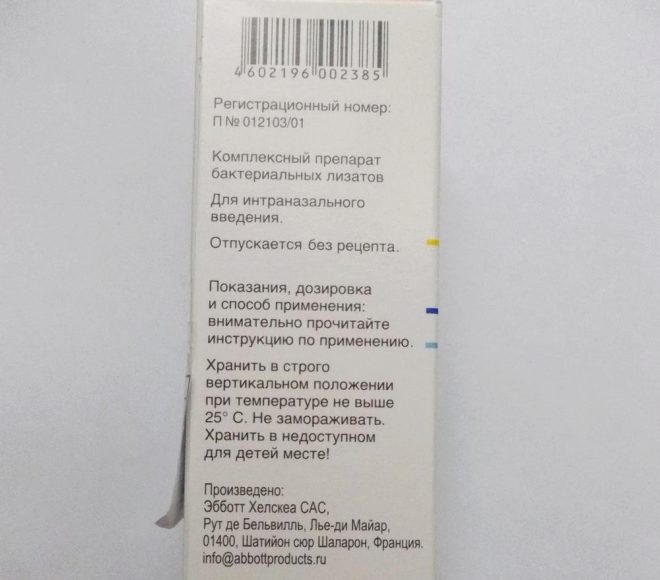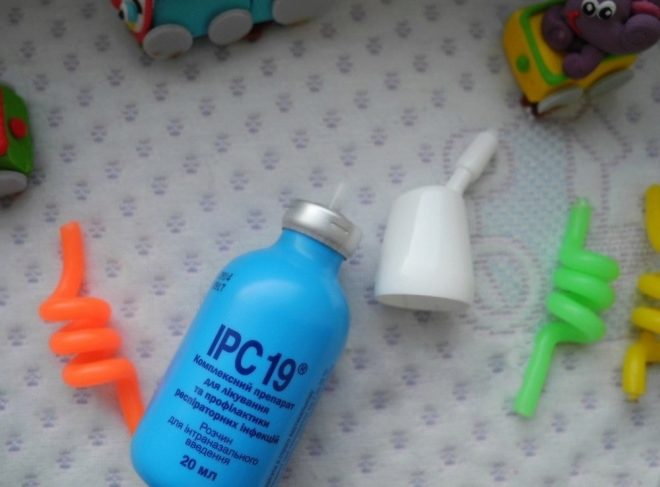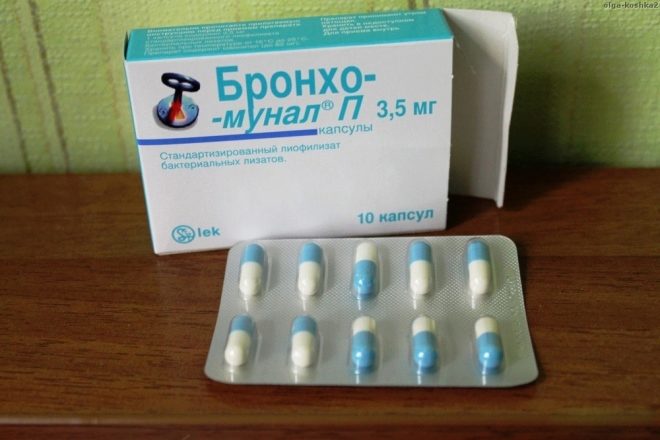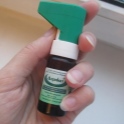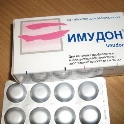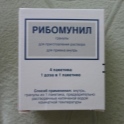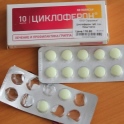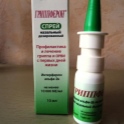IRS 19 for children
Wanting to protect the child from viral diseases and colds, many mothers are interested in immunostimulatory drugs. One of the drugs of this group is IRS-19. How does this medication work on the human body when it is used and can it be given to children for the prevention of influenza?
Release form
The drug is produced in the form of a nasal spray. Inside one cylinder contains 20 ml of clear liquid, which has an unexpressed specific flavor. It can be both colorless and yellowish. When it is sprayed, an aerosol of fine particles appears. In addition to the bottle in the box there is a nozzle and abstract.
Composition
The active ingredient of IRS-19 is a mixture of lysates of bacteria, among which are pneumococci, Klebsiella, moraxella, haemophilus bacilli, pyogenic streptococci, acinetobacters, neisserias, enterococci and golden staphylococci. Auxiliary substances of the spray are sodium thimerosum, purified water and glycine. There are medicines and flavoring, including limonene, geraniol and other substances.
Operating principle
IRS19 belongs to the group of immunomodulatory drugs. When lysates from an aerosol get on a mucous membrane of a nasopharynx, they stimulate a local immune response. Under their action, secretory immunoglobulins A, which have the property to block the fixation of pathogens in the nasal cavity and their reproduction, begin to form.
In addition, the drug increases the phagocytic function of macrophages and increases the level of lysozyme in secret, which causes the patient to non-specific immune defenses against infections.
Indications
IRS-19 is prescribed:
- For the treatment of rhinitis, laryngitis, tracheitis, adenoids, tonsillitis and other diseases of the respiratory tract - both acute and in chronic form.
- For the prevention of chronic pathologies of the respiratory system.
- In order to restore the local immune protection of the mucous membrane after SARS.
- In preparation for surgery in the field of upper respiratory tract, as well as after such surgical treatment.
At what age is it allowed to take?
In pediatrics, medication is used from the age of three months.
Contraindications
IRS-19 should not be prescribed to children who are hypersensitive to any component of the drug. Also, this medicine is not used in the treatment of young patients with autoimmune pathologies.
Side effects
Some children in the first days of application of the spray may have such adverse reactions as frequent sneezing and an increase in the amount of discharge from the nose. Often these are short-term symptoms that pass quickly. If they increase, you should contact your pediatrician to decide whether to reduce the dosage or cancel the medication.
In addition, the treatment of IRS-19 can lead to:
- Skin allergic reactions.
- Cough or asthma attack.
- Increased body temperature.
- Nausea, pain in the abdomen, diarrhea, vomiting.
- Rhinopharyngitis, bronchitis, laryngitis or sinusitis.
All of these reactions are very rare and require treatment to a doctor.
Instructions for use and dosage
- IRS-19 only injected into the nose, and each press on the spray corresponds to a single dose of medication.Before treating the nasal mucosa, you need to release it from the mucous secretions.
- Putting the nozzle on the bottle, it is necessary to center it, and then press the dispenser. After such a test press, the spray can be used, but it is important to do it correctly - tilting your head back (the child must keep his head upright) and the inclination of the bottle (he must also be positioned vertically so that the contents do not spill).
- If the medication is used regularly, then there is no need remove the spray device. With a long break, the liquid portion of the remaining drops of the medication in the nozzle will evaporate. As a result, crystals form at the outlet, which will interfere with spraying. It also happens if the mother removed the nozzle, but did not rinse or dry it. If this happens, you need to repeatedly press the sprayer to create excess pressure or hold the nozzle in warm water.
- In the treatment of pathologies of the respiratory tract a child older than 3 months to 3 years of age is prescribed a daily two-dose spraying of the drug, one dose in each nasal passage. In children older than three years, the frequency of injections can be increased up to 5 times per day. Therapy continues until recovery.
- Preventive course Drug administration lasts 2 weeks and is recommended for two or three weeks before the start of the season of colds and viral diseases. The child is given one dose of spray twice a day in each nostril.
- To restore local immunity in children, After having had flu or another acute respiratory viral infection, for two weeks after the disease, inject IRS-19 in one dose into each nostril twice a day.
- If a child is scheduled for surgery, the drug is prescribed one week before the intervention. Spray injected into the nose for one dose twice a day. The duration of this application is 2 weeks, that is, after surgical treatment of the drug is used for another week.
Overdose
There have been no cases when an excess dose of spray resulted in negative symptoms.
Interaction with other drugs
IRS-19 can be prescribed with other medicines. For example, if a child has a bacterial infection, this drug can be combined with antibiotics.
Terms of sale
It is not required to get a prescription from a doctor in the pharmacy for purchasing IRS-19, but specialist advice is desirable. The average price of one aerosol can is 430-460 rubles.
Storage conditions and shelf life
Keep a bottle of medicine should be away from the sun in an upright position. Storage temperature should not be below 0 or above +25 degrees. The drug must be inaccessible to kids. Shelf life of the drug is 3 years. After full use of the drug, the balloon should not be pierced or ignited.
Reviews
Opinions of doctors and parents on the use of IRS-19 in children are very contradictory. In positive reviews, mothers confirm the effectiveness of the drug and its assistance in viral infections. They note that after the course of such a drug, the child did not catch the flu or had SARS better.
Packing IRS-19, many parents call it convenient and note that it is very easy to use the sprayer. However, there are a lot of negative reviews, in which they complain about the lack of effect from the use of the spray and the high cost of the drug, because of what parents are looking for cheaper substitutes.
As for doctors, some people often prescribe this medicine and see its positive effect on their patients. Other specialists, including Dr. Komarovsky, consider IRS-19 and other immunomodulators ineffective and prefer to fight against ARD and protect children from infection with non-drug methods.
Analogs
Other drugs with a similar therapeutic effect can replace IRS-19, for example:
- Ribomunil. Such a preparation contains particles of bacteria that most often cause otitis, sinusitis, sore throat, rhinitis, pneumonia and other pathologies of the respiratory system. The drug is released in granules and tablets, and children are prescribed from 6 months of age.
- Imudon. The composition of this drug in the form of lozenges also includes the lysates of several microorganisms. The drug is in demand for angina, stomatitis and other diseases. It is prescribed to children 3 years and older.
- Derinat. The active substance of such a drug is sodium deoxyribonucleinate. This compound activates the immune system and is often used for SARS in children of any age. It can be dripped into the nose and eyes, and the spray can be used to treat both the nasal cavity and throat or oral mucosa.
- Broncho-munal P. The basis of this medicine in capsules are the lysates of streptococcus, Klebsiell, Staphylococcus and some other bacteria. The drug is used for SARS, bronchitis and other respiratory diseases. At children's age it can be appointed since 6 months.
- Cycloferon. This drug has the ability to enhance the production of interferon, so it can be used for influenza or ARVI. The drug is released in coated tablets and is prescribed from 4 years.
- Grippferon. Such an immunostimulating drug based on interferon is released in drops in the nose, as well as in the spray. Its use for therapeutic purposes or for prevention is allowed at any age.
In the next short video, Dr. Komarovsky explains what needs to be done in order to improve the immunity of the child.
